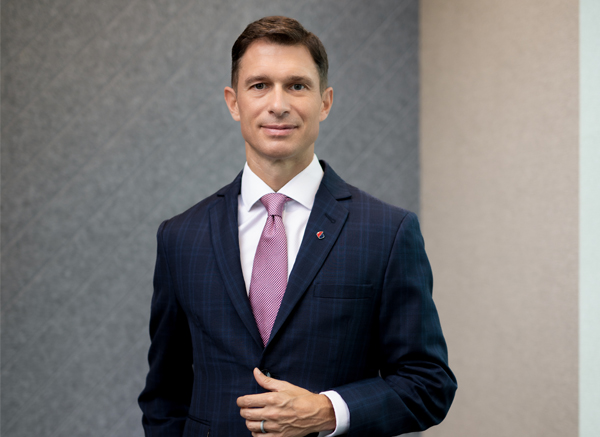MSIG Asia’s CEO shares approach to risk management amidst market shifts in 2024
Insurers are facing mounting pressure to enhance offerings amidst rising expectations and socio-economic shifts, coupled with a growing affluent population. Jurisdictional requirements vary for foreign insurance firms establishing branches, with some regions allowing only locally incorporated entities.
In an interview with Insurance Asia, MSIG Asia Chief Executive Officer Clemens Philippi discussed how we can navigate the impact of regulatory changes with a proactive stance. He also talked about opportunities for organic and inorganic growth, as well as emerging opportunities.
Here are excerpts from his interview with Insurance Asia.
The full interview was published in the article titled “MSIG Asia’s CEO shares approach to risk management evolution”.

What new strategies is your company implementing in 2024 to stay competitive and address changing customer needs?
Despite regulatory changes posing challenges to the industry, MSIG Asia is approaching this as an opportunity. The increased minimum capital requirements in some countries and other market pressures, from regulators or the environment will lead to consolidation. It’s a challenge for most of the players, but we see these as an opportunity in terms of organic and inorganic growth. On the organic side, to continue with product development. So, in the last few years, we've invested in new products — bite-sized products — to be easily distributable for platform partners to have micro-insurance offerings. Also, for the small and medium enterprises (SME) and micro-SME parts in cyberspace, we offer many more products. On the inorganic side, consolidation trends might be triggered through regulatory changes, a high-interest environment or reinsurance pressures. We have set up a team in the regional management office to study the potential in the markets.
How does MSIG Asia handle risk management and mitigation, particularly with emerging risks, and how has this changed over time?
Risk management plays a key role for long-term profitable and sustainable growth. We have invested a lot in risk management resources. The team is operating on both country and regional level. On one hand, the team is focused on traditional risk management tasks such as defining risk appetite, securing solvency at all times through capital management, conducting stress test scenarios, working on risk mapping and mitigation measures for example. On the other hand, the team is striving to go beyond the traditional tasks to take on a more offensive or proactive approach. This means our risk management team assesses growth opportunities and gives signals to accelerate or decelerate actions.
On the more traditional product side, we are a big player in all the markets for motor insurance, and our risk management team is heavily involved in assessing risks and opportunities and steering the portfolio with the actuaries.
On top of that risk bubble is the topic of generative artificial intelligence or AI. What is the risk of ignoring it?
Regarding digital innovation, we have set up an expert team in Singapore, which is helping all our countries to get to grips with generative AI and how we can use it on the front line and the back office. An important question asked by our risk management team is: ‘What’s the risk of not speedily adopting generative AI?’ But at the same time, ‘What is the risk of wrongly adopting it?’ These are questions we discuss heavily in local and regional risk management committees.
Can you share with us your experience as an insurance leader?
I think it’s the best time to be a CEO in an insurance company. At the beginning of the year, we undertook a series of town halls across the region to engage our staff. On each occasion, my message is clear: among all the financial instruments, insurance offers the most purposeful product. At MSIG Asia, I want to excite our employees with this message. With the recent VUCA (volatility, uncertainty, complexity, ambiguity) environment, our industry has a pivotal role to play in making societies more stable and balanced and contributing to economic development.
Therefore, with all the above said, I enjoy every day as CEO of MSIG Asia working with my colleagues.
